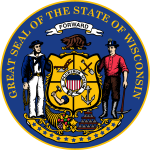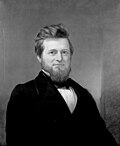
The 1986 Wisconsin gubernatorial election was held on November 4, 1986. Republican Tommy G. Thompson won the election with 53% of the vote, winning his first term as Governor of Wisconsin and defeating incumbent Governor Anthony S. Earl. This was the first time since 1962 that the winner of a Wisconsin gubernatorial election was of the same party as the incumbent president. Jonathan B. Barry unsuccessfully sought the Republican nomination.

The 1982 Wisconsin gubernatorial election was held on November 2, 1982. Democrat Anthony S. Earl won the election with 56.75% of the vote, defeating Republican Terry J. Kohler.
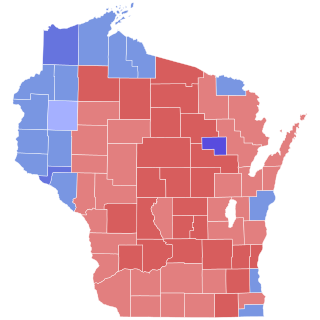
The 1978 Wisconsin gubernatorial election was held on November 7, 1978. Republican Lee S. Dreyfus won the election with 54% of the vote, winning his first term as Governor of Wisconsin and defeating incumbent Democrat Martin J. Schreiber. Bob Kasten unsuccessfully sought the Republican nomination.
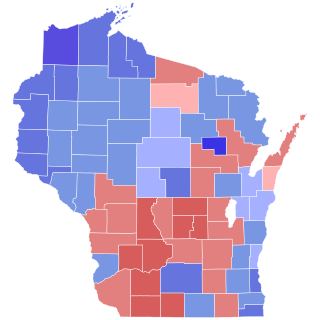
The 1974 Wisconsin gubernatorial election was held on November 5, 1974. Democrat Patrick Lucey won the election with 53% of the vote, winning his second term as Governor of Wisconsin and defeating Republican William Dyke.

The 1970 Wisconsin gubernatorial election was held on November 3, 1970. Democrat Patrick J. Lucey won the election with 54.23% of the vote, winning his first term as Governor of Wisconsin and defeating incumbent lieutenant governor, Republican Jack B. Olson. Roman R. Blenski unsuccessfully sought the Republican nomination. As of 2024, this is the last time the Democratic gubernatorial candidate carried Oconto County.

The 1964 Wisconsin gubernatorial election was held on November 3, 1964. Republican Warren P. Knowles won the election with 50.55% of the vote, winning his first term as Governor of Wisconsin and narrowly defeating incumbent Democrat John W. Reynolds.

The 1855 Wisconsin gubernatorial election was held on November 6, 1855. Republican Party candidate Coles Bashford was declared the winner after a court challenge, defeating Democratic incumbent William A. Barstow.

The 1960 Wisconsin gubernatorial election was held on November 8, 1960. Democrat Gaylord A. Nelson won the election with 51.5% of the vote, retaining his position as Governor of Wisconsin.
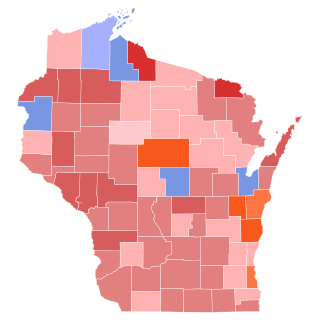
The 1918 Wisconsin gubernatorial election was held on November 5, 1918. Primary elections were held on September 3, 1918.

The 1916 Wisconsin gubernatorial election was held on November 7, 1916. Primary elections were held on September 5, 1916.

The 1857 Wisconsin gubernatorial election was held on November 3, 1857. After incumbent Governor Coles Bashford declined to seek re-election, Republican Party candidate Alexander Randall narrowly defeated Democratic candidate James B. Cross by a margin of just 118 votes.

The 1859 Wisconsin gubernatorial election was held on November 8, 1859. Republican Party incumbent Governor Alexander Randall won re-election with 53% of the vote, defeating Democratic candidate Harrison Carroll Hobart.

The 1863 Wisconsin gubernatorial election was held on November 3, 1863. Union candidate James T. Lewis won the election with nearly 60% of the vote, defeating Democratic candidate Henry L. Palmer.

The 1938 Wisconsin gubernatorial election was held on November 8, 1938. Primary elections were held on September 20, 1938. Incumbent Progressive Governor Philip La Follette was defeated by Republican nominee Julius P. Heil.

The 1936 Wisconsin gubernatorial election was held on November 3, 1936. Primary elections were held on September 15, 1936. Incumbent Progressive Governor Philip La Follette won re-election, defeating Republican nominee Alexander Wiley and Democratic nominee Arthur W. Lueck. As of 2022, this is the last time that Shawano County did not vote for the Republican nominee for governor and the last time Dodge County voted Democratic for governor.

The 1928 Wisconsin gubernatorial election was held on November 6, 1928. Primary elections were held on September 4, 1928. Incumbent Republican Governor Fred R. Zimmerman was defeated in the Republican primary. Republican nominee Walter J. Kohler Sr. defeated Democratic nominee Albert G. Schmedeman with 55.38% of the vote.

The 1930 Wisconsin gubernatorial election was held on November 4, 1930. Primary elections were held on September 16, 1930. Incumbent Republican Governor Walter J. Kohler Sr. was defeated in the Republican primary. Republican nominee Philip La Follette defeated Democratic nominee Charles E. Hammersley with 64.76% of the vote.

The 1932 Wisconsin gubernatorial election was held on November 8, 1932. Incumbent Republican Governor Philip La Follette was defeated in the Republican primary, and in the midst of the Great Depression and nationwide voter dissatisfaction with the Republican Party, Democratic nominee Albert G. Schmedeman defeated Republican nominee Walter J. Kohler Sr. and Socialist nominee Frank Metcalfe with 52.48% of the vote. Schmedeman became the first Democrat to win a gubernatorial election in Wisconsin since George Wilbur Peck in 1892. Two years later, in 1934, La Follette would run for governor again and defeated Schmedeman, this time running with the Progressive Party.

The 1896 Wisconsin gubernatorial election was held on November 3, 1896.

The 1908 Wisconsin gubernatorial election was held on November 3, 1908. Primary elections were held on September 1, 1908.

